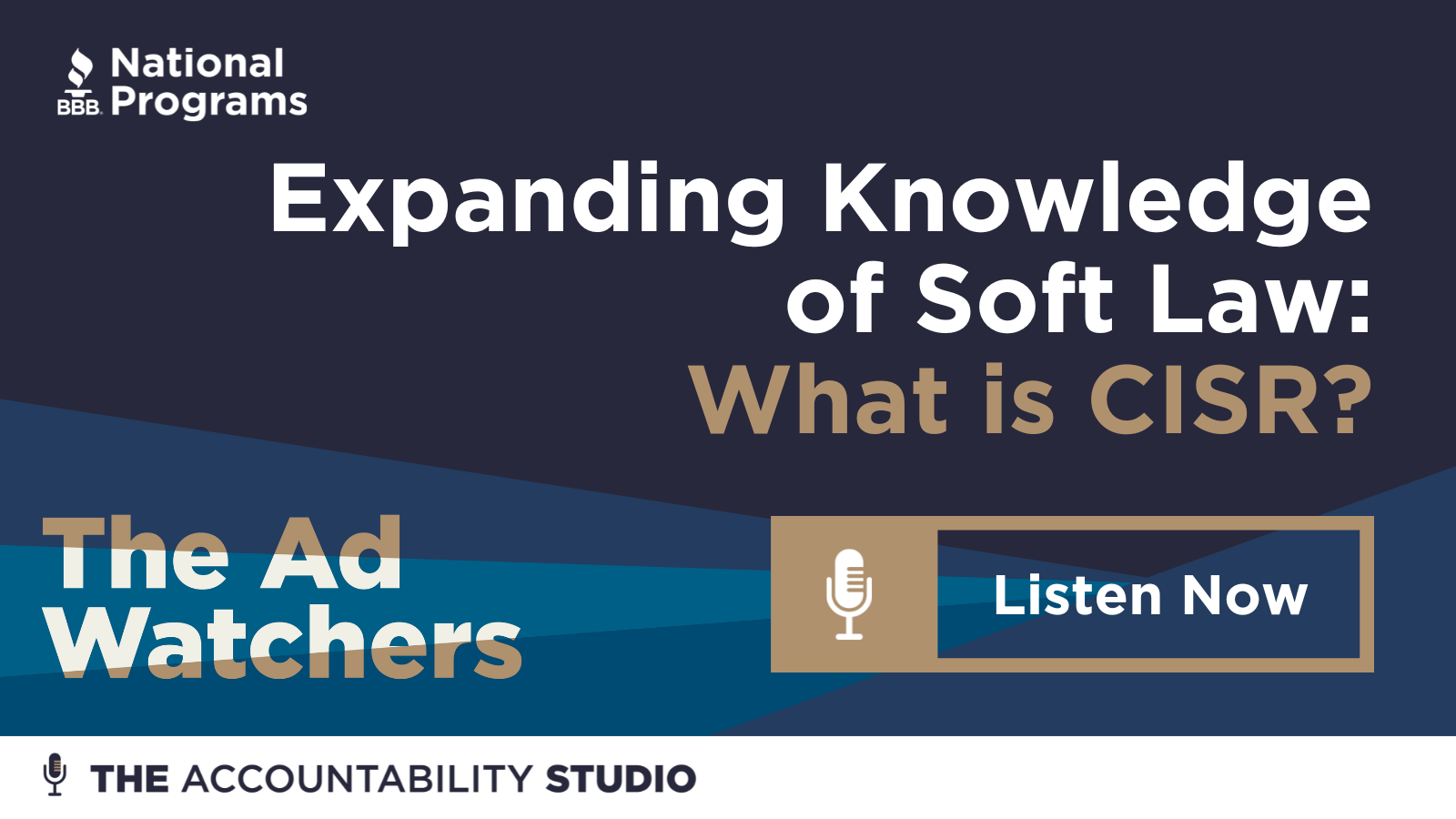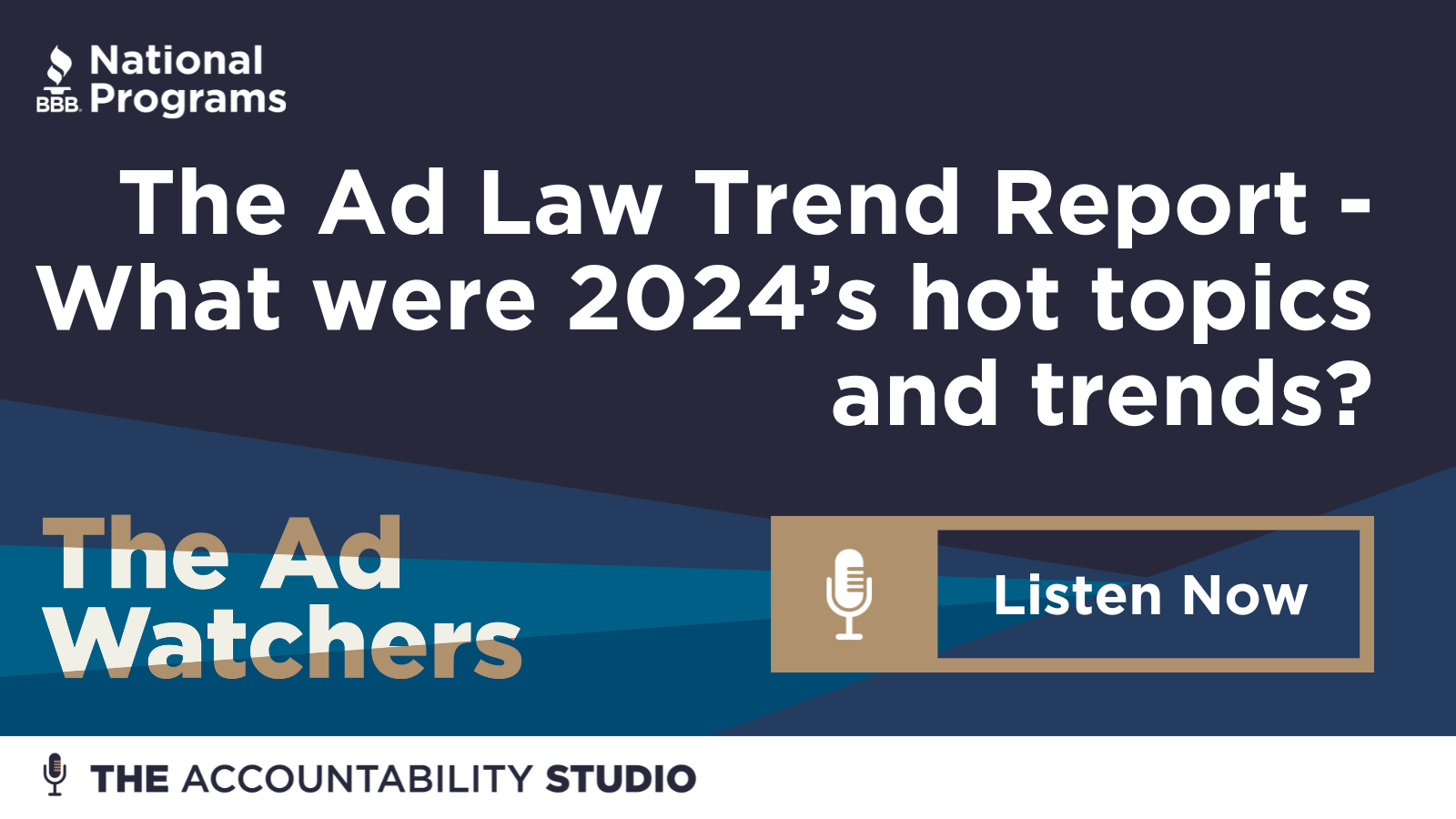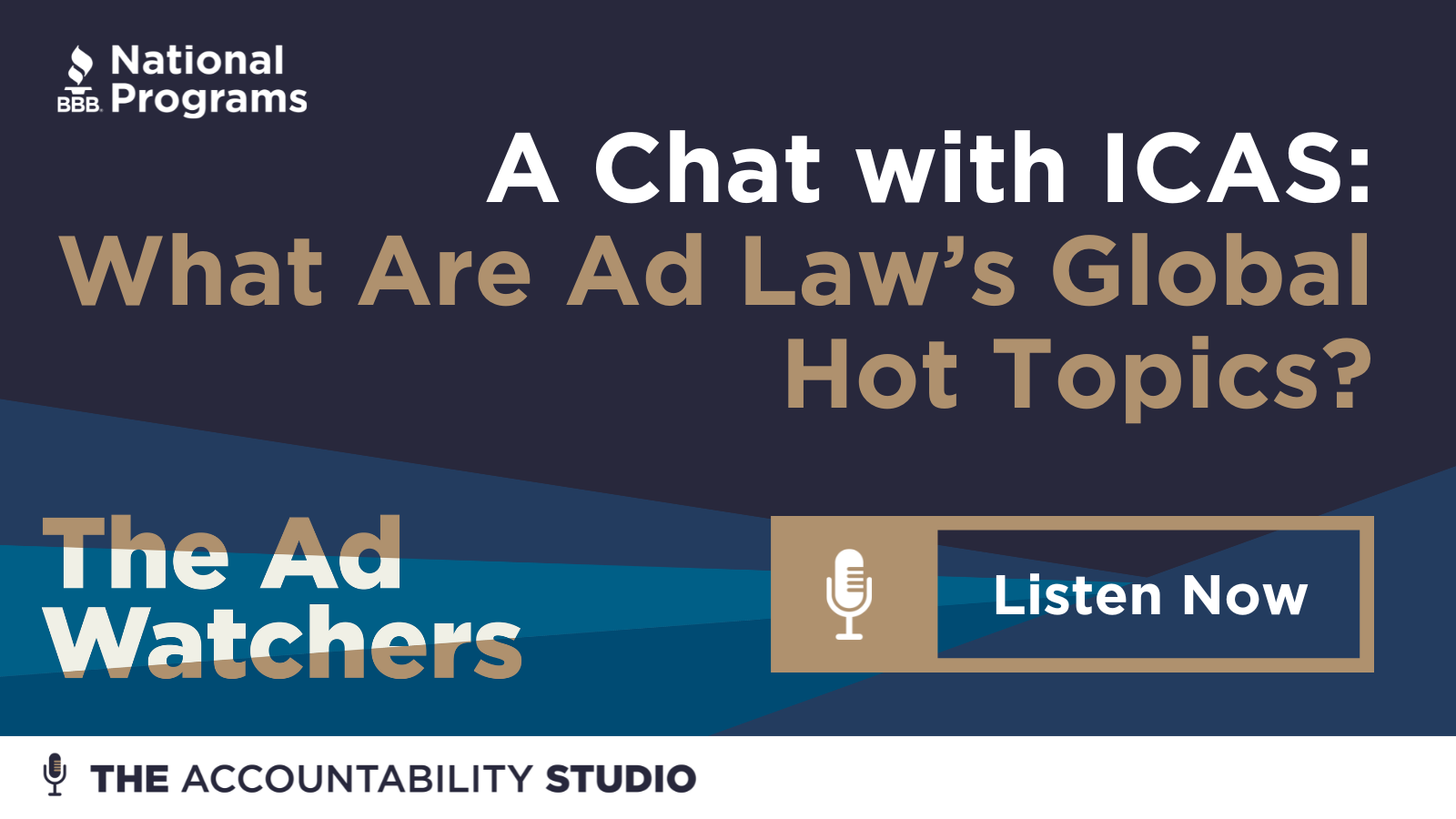Podcast (adwatchers): Play in new window | Download (Duration: 30:25 — 41.8MB) | Embed
Subscribe: Apple Podcasts | RSS
Health-related advertising claims are held to a higher standard of proof than other claims. For health-related claims, a “reasonable basis” requires advertisers to provide competent and reliable scientific evidence (CARSE). In this episode, your hosts Annie and Eric dig into the weeds of National Advertising Division cases on GLP-1, claims that certain foods could “boost brain health,” performance claims like “live longer” and “jump higher,” and other drug and dietary supplement claims, including those targeted to creating a “calm mood” in children.
Key Takeaways
00:00 Introduction to the National Advertising Division
00:56 Health Claims Overview
02:22 Regulatory Guidance on Health Claims
05:17 Competitor Challenges in Health Claims
08:38 Nutritional Claims and Evidence
11:31 Dietary Supplements and Drug Claims
14:24 Case Studies on Dietary Supplements
15:46 Advertising to Different Audiences
19:07 Claims in Sports Performance Products
22:26 Pain Relief Products and Evidence
23:51 Oral Care Products and Claims
28:36 Final Tips and Conclusion




